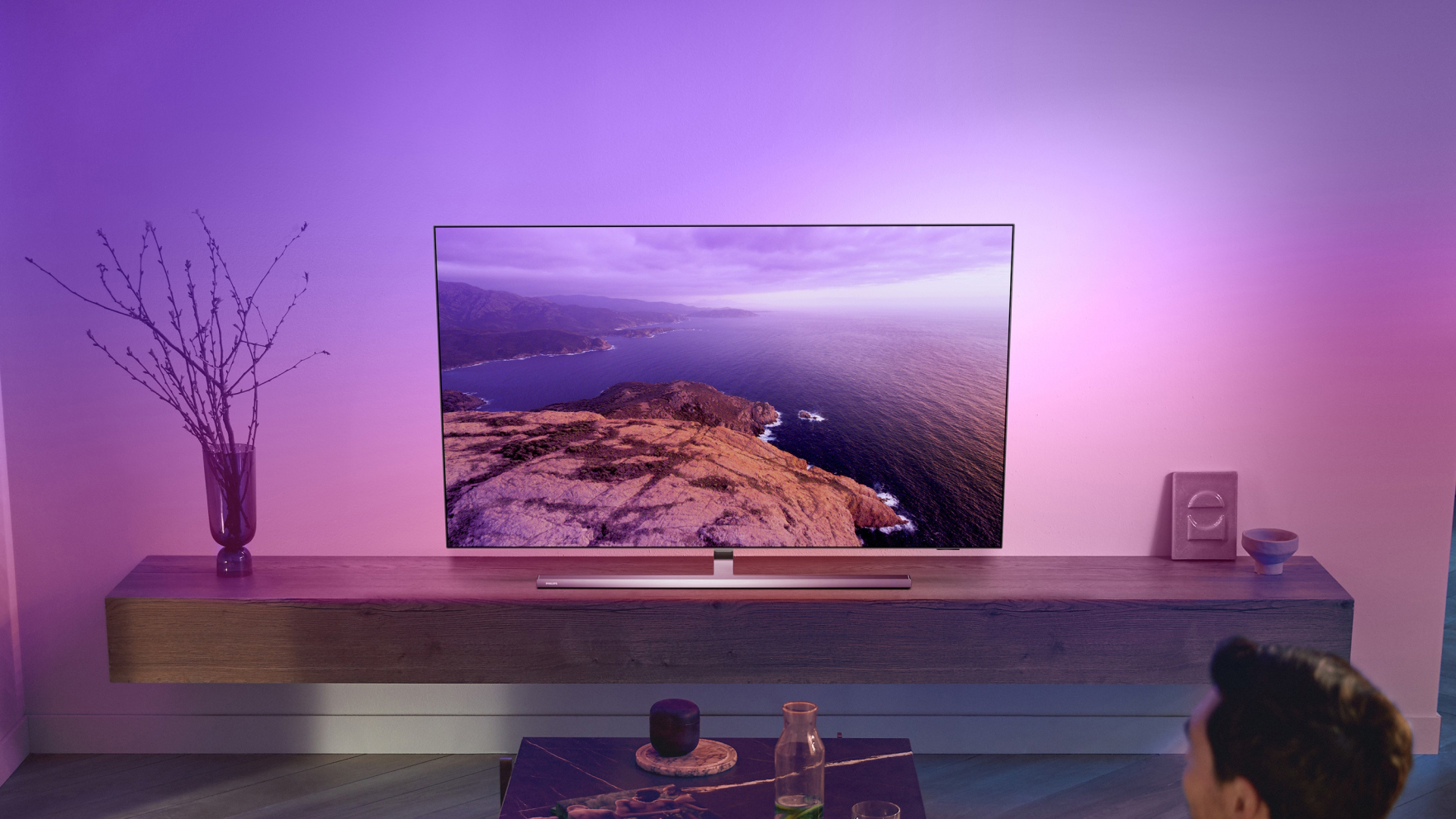Philips' new OLED TV is major challenger to the LG C2 thanks to a huge list of upgrades
The new Philips 807 features a brighter next-gen OLED panel, updated processing, new sound, IMAX Enhanced, better gaming, a super-powered Ambilight…


Philips has just announced its 2022 TVs, the crown jewel of which is the Philips OLED807, which has been nipped, tucked and cranked in just about every conceivable way from the OLED806 that it replaces.
For a start, the new set features a next-gen OLED EX panel, which can reach 30% brighter highlights than the previous model, and should be in line for brightness with new and improved LG C2 (which now has an expected price and release date). Expect this panel, or the OLED Evo equivalent, to be in most of the best OLED TVs this year.
The new panel has also allowed Philips to tweak the design, slimming the bezels down to almost nothing, and adding a new stylish base. It features the company's signature Ambilight tech on all four sides, but that's debuting a new more-advanced version here too – the colour on the light strips is now controlled down to the individual LED, meaning that it has three times the control zones than before, so it can even more accurately represent what's on the screen.
The new design also incorporates an impressive 70W 2.1-channel speakers system, though Philips is also launching a range of wireless surround speakers to work with its TVs, with the TV acting a centre speaker, giving you an easy upgrade path to take advantage of its Dolby Atmos support.
The processing has been updated to include several options that can tweak the image based on the ambient light in the room – this can include adjusting black levels to make things more visible in brighter light, and changing the colour temperature to make viewing more comfortable in your evening light as opposed to sunlight.
Some of the other image modes have had their processing changed too, including the old 'Vibrant' mode being changed to 'Crystal Clear' mode, with tweaks to the picture to reflect the new name.
There's also IMAX Enhanced compatibility now, alongside HDR10+ and Dolby Vision support, which can help you get the most of the movies released in the bigger IMAX format, which are just starting to appear (including on some movies on Disney+).
Get all the latest news, reviews, deals and buying guides on gorgeous tech, home and active products from the T3 experts
And gaming has gotten a boost too. Not only is 4K 120Hz support with VRR now possible over the two HDMI 2.1 ports (with two more HDMI 2.0 ports available), but there's a new Game Bar that makes it easy to change settings depending on the type of game you're playing. This means you can optimise for low latency (which Philips says can be as little as 9ms), image fidelity or make sure settings such as the AMD FreeSync and Nvidia G-Sync support are enabled and working.
It's effectively the same as you get on the best Samsung TVs and best LG TVs, and you'll get no complaints about that from me. This kind of option is exactly what Philips needs to finally break into our list of the best gaming TVs.
Considering that Philips was already producing five-star OLED TVs that were the choice of many connoisseurs over the better-known options from LG – including the Philips OLED936 – the lengthy list of changes here has us thinking that the Philips OLED807 could be the TV dark horse of 2022.
There's no pricing or release date yet, but most TVs will land in spring. Philips' previous OLED TVs have all been sold in only certain territories, including Europe and Australia, but not the US – and that doesn't seem to changing yet, sadly.
It'll be available in 48-inch, 55-inch, 65-inch and 77-inch sizes, though you should note that the 48-inch set won't include the brighter OLED EX panel – at the moment, LG Display (the sole maker of all OLED panels) doesn't make the next-gen screens in that size.
Philips is also releasing a more affordable model, the OLED707, which won't have the brighter OLED EX screen at any size, and has a slightly older design, but otherwise very closely matches the specs of the OLED807, including the 4K 120Hz support with VRR and new picture improvements.

Matt is T3's former AV and Smart Home Editor (UK), master of all things audiovisual, overseeing our TV, speakers and headphones coverage. He also covered smart home products and large appliances, as well as our toys and games articles. He's can explain both what Dolby Vision IQ is and why the Lego you're building doesn't fit together the way the instructions say, so is truly invaluable. Matt has worked for tech publications for over 10 years, in print and online, including running T3's print magazine and launching its most recent redesign. He's also contributed to a huge number of tech and gaming titles over the years. Say hello if you see him roaming the halls at CES, IFA or Toy Fair. Matt now works for our sister title TechRadar.